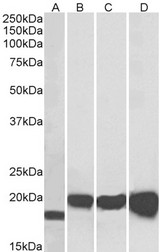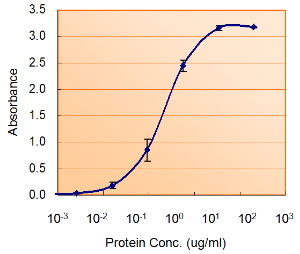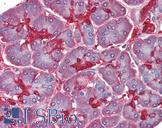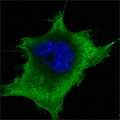Login
Registration enables users to use special features of this website, such as past
order histories, retained contact details for faster checkout, review submissions, and special promotions.
order histories, retained contact details for faster checkout, review submissions, and special promotions.
Forgot password?
Registration enables users to use special features of this website, such as past
order histories, retained contact details for faster checkout, review submissions, and special promotions.
order histories, retained contact details for faster checkout, review submissions, and special promotions.
Quick Order
Products
Antibodies
ELISA and Assay Kits
Research Areas
Infectious Disease
Resources
Purchasing
Reference Material
Contact Us
Locations
Orders Processing,
Shipping & Receiving,
Warehouse
2 Shaker Rd Suites
B001/B101
Shirley, MA 01464
Production Lab
Floor 6, Suite 620
20700 44th Avenue W
Lynnwood, WA 98036
Telephone Numbers
Tel: +1 (206) 374-1102
Fax: +1 (206) 577-4565
Contact Us
Additional Contact Details
Login
Registration enables users to use special features of this website, such as past
order histories, retained contact details for faster checkout, review submissions, and special promotions.
order histories, retained contact details for faster checkout, review submissions, and special promotions.
Forgot password?
Registration enables users to use special features of this website, such as past
order histories, retained contact details for faster checkout, review submissions, and special promotions.
order histories, retained contact details for faster checkout, review submissions, and special promotions.
Quick Order
| Catalog Number | Size | Price |
|---|---|---|
| LS-C55508-100 | 100 µg (0.5 mg/ml) | $503 |






1 of 3
2 of 3
3 of 3
Polyclonal Goat anti‑Human SOD1 / Cu‑Zn SOD Antibody (aa69‑81, WB) LS‑C55508
Polyclonal Goat anti‑Human SOD1 / Cu‑Zn SOD Antibody (aa69‑81, WB) LS‑C55508
Antibody:
SOD1 / Cu-Zn SOD Goat anti-Human Polyclonal (aa69-81) Antibody
Application:
WB, ELISA, Peptide-ELISA
Reactivity:
Human, Mouse
Format:
Unconjugated, Unmodified
Toll Free North America
 206-374-1102
206-374-1102
For Research Use Only
Overview
Antibody:
SOD1 / Cu-Zn SOD Goat anti-Human Polyclonal (aa69-81) Antibody
Application:
WB, ELISA, Peptide-ELISA
Reactivity:
Human, Mouse
Format:
Unconjugated, Unmodified
Specifications
Description
Cu-Zn SOD antibody LS-C55508 is an unconjugated goat polyclonal antibody to Cu-Zn SOD (SOD1) (aa69-81) from human. It is reactive with human and mouse. Validated for ELISA, Peptide-ELISA and WB.
Target
Human SOD1 / Cu-Zn SOD
Synonyms
SOD1 | ALS | ALS1 | Cu/Zn superoxide dismutase | HSod1 | Homodimer | IPOA | SOD, soluble | SOD | Superoxide dismutase [Cu-Zn] | Superoxide dismutase 1 | Indophenoloxidase A | Superoxide dismutase, cystolic
Host
Goat
Reactivity
Human, Mouse
(tested or 100% immunogen sequence identity)
Clonality
Polyclonal
Conjugations
Unconjugated
Purification
Purified from goat serum by ammonium sulphate precipitation followed by antigen affinity chromatography using the immunizing peptide.
Modifications
Unmodified
Immunogen
Peptide with sequence C-SRKHGGPKDEERH, from the internal region of the protein sequence according to NP_000445.1.
Epitope
aa69-81
Specificity
Human SOD1.
Applications
- Western blot (0.01 - 0.03 µg/ml)
- ELISA (1 - 2 µg/ml)
- Peptide Enzyme-Linked Immunosorbent Assay (1:8000)
Presentation
TBS, pH 7.3, 0.02% Sodium Azide, 0.5% BSA
Storage
Aliquot and store at -20°C. Avoid freeze-thaw cycles.
Restrictions
For research use only. Intended for use by laboratory professionals.
About SOD1 / Cu-Zn SOD
Publications (0)
Customer Reviews (0)
Featured Products
Species:
Human, Mouse, Rat
Applications:
IHC, IHC - Paraffin, Immunofluorescence, Western blot
Species:
Human
Applications:
Western blot, Immunoprecipitation, ELISA
Species:
Human
Applications:
ICC, Immunofluorescence, Western blot, Flow Cytometry, ELISA
Request SDS/MSDS
To request an SDS/MSDS form for this product, please contact our Technical Support department at:
Technical.Support@LSBio.com
Requested From: United States
Date Requested: 4/19/2024
Date Requested: 4/19/2024



![SOD1 / Cu-Zn SOD Antibody - Western blot of Superoxide dismutase [Cu-Zn] antibody at 2 ug/ml. Lane 1: EC109 whole cell lysate. Lane 2: 293T whole cell lysate. Secondary: Goat polyclonal to Rabbit IgG at 1:15000 dilution. Predicted band size: 17 kDa. Observed band size: 32 kDa. This image was taken for the unconjugated form of this product. Other forms have not been tested.](https://lsbio-7d62.kxcdn.com//image2/sod1-cu-zn-sod-antibody-biotin-ls-c210916/158316_1322050.jpg)








